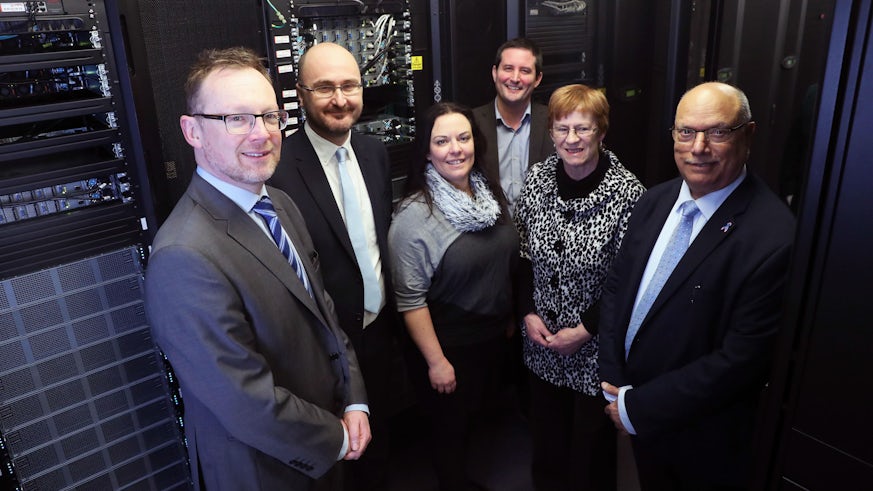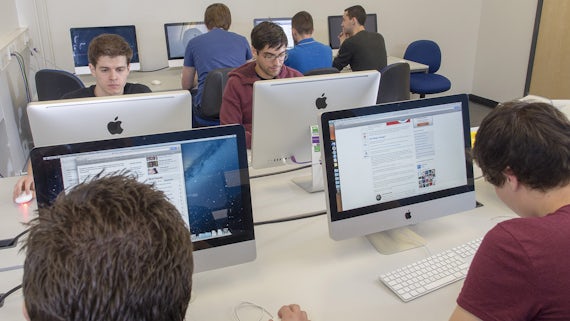AMs visit Supercomputing Wales
6 December 2019

Members of the National Assembly for Wales’s Economy, Infrastructure and Skills Committee have visited Cardiff University to gain an insight into the high-profile science and innovation happening at its state-of-the-art supercomputing facilities.
The Committee were given an overview of the £16m Supercomputing Wales project, which brings together Cardiff, Swansea, Bangor and Aberystwyth universities to harness the power of high-performance computing technology to tackle some of the world’s most pressing issues.
Since its launch in 2018 Supercomputing Wales, which is part-funded by the European Regional Development Fund through the Welsh Government, has allowed universities to capture more external research funding, increase scientific partnerships, create highly skilled research jobs and support collaborations with industrial and other partners.
Much of the work being undertaken through Supercomputing Wales is aligned closely to areas of significant importance to the Welsh economy, including nano-scale materials and advanced engineering; energy and the environment; and life sciences and health.
Behaviours of pathogens
As part of the visit, the Committee were given an overview of work undertaken by Dr Tom Connor from Cardiff University’s School of Biosciences.
Dr Connor’s research looks at the different behaviours of pathogens – tiny organisms that cause disease – and how they evolve and then spread in local and global outbreaks.
As part of his research Dr Connor analyses the DNA of the pathogens to explore how they relate or differ to other organisms of interest, which requires huge amounts of data analysis and processing that is only made possible by supercomputing facilities.
Whilst a desktop PC typically features four so-called ‘processing cores’, supercomputers contain thousands of cores and can therefore be used by scientist and engineers to solve problems where a very high rate of calculation or simulation is required.
Dr Connor also works closely with the NHS to translate these approaches into diagnostic and surveillance tools that can be used at a local and national level.
Speaking ahead of the visit, Cardiff University’s Professor Roger Whitaker, Academic Director of Supercomputing Wales, said: “This project has provided a step change in supercomputing-enabled scientific research in Wales.

The consortium is bringing millions of pounds of research into the county and establishing links with leading industrial and public-sector partners, whilst at the same time helping to develop the next generation of computer scientists through a multi-million-pound Centre for Doctoral Training.
“We are absolutely delighted to welcome the Economy, Infrastructure and Skills Committee to the University to showcase some of the ground-breaking and impactful scientific developments that are changing people’s lives and happening right here in Wales.”
“The Committee were pleased to be invited to Supercomputing Wales and would like to thank Cardiff University for hosting such an informative visit. Supercomputer Wales plays three vital roles in developing our economy. It helps to keep Welsh research cutting edge, allows our universities to train top class computer scientists and the computer power can be used by Welsh businesses and society to innovate. Facilities like this are a cornerstone of the future economy in Wales.”
Share this story
The School is research-led with a reputation for excellent teaching and internationally accomplished research activities.





